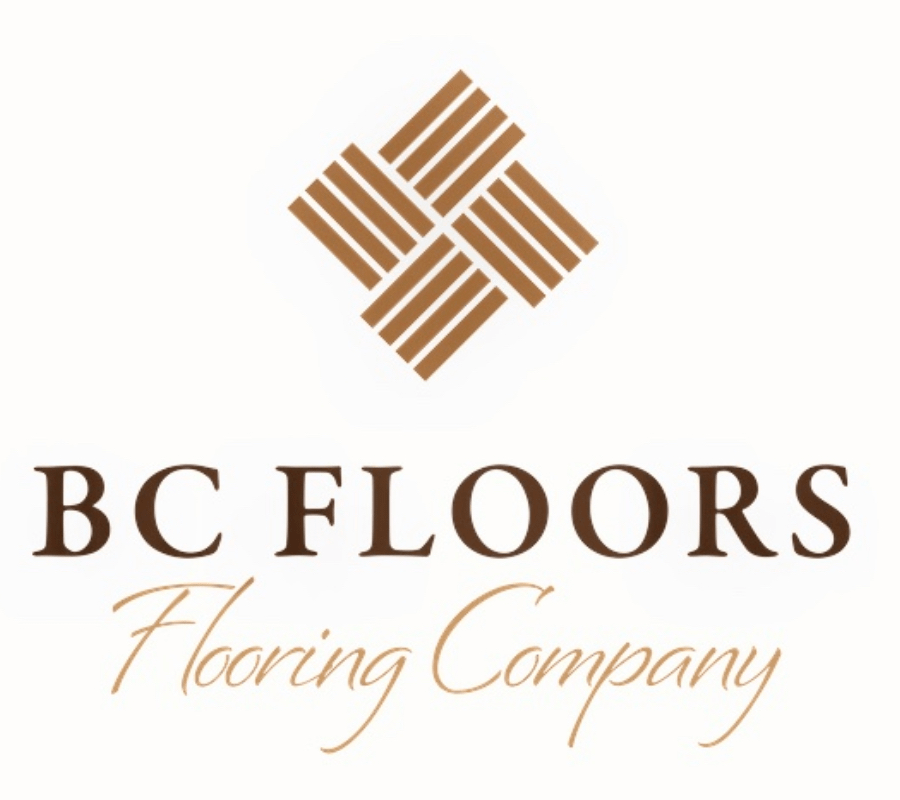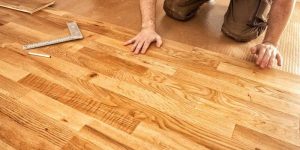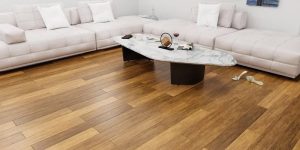What is Solid Hardwood? Features and Benefits
Solid hardwood flooring comes from a single thick piece of timber, usually in species such as oak, maple, or cherry. Its timeless appeal and natural beauty have made it a popular choice among homeowners seeking a classic and elegant look. One of the primary benefits of solid hardwood is its durability. When properly maintained, it can last for decades, if not a lifetime.
A key feature of solid hardwood is its ability to be sanded and refinished multiple times. This means that even after years of wear and tear, you can restore its original beauty by removing surface imperfections and applying a fresh finish. This capability not only extends the lifespan of the flooring but also offers the flexibility to change its appearance to match evolving interior design trends.
However, solid hardwood is not without its challenges. It is susceptible to moisture and humidity, which can cause warping or gapping over time. This makes it less ideal for areas like basements or regions with high humidity fluctuations. Extra care is required when installing solid hardwood flooring in Vancouver’s damp climate.
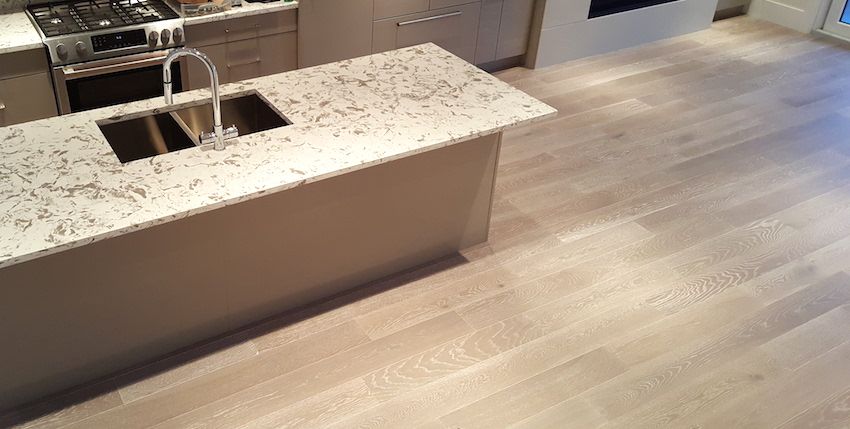
Key Characteristics of Engineered Hardwood
Engineered hardwood is designed to address some of the limitations of solid wood. It consists of a top layer of real hardwood veneer adhered to several layers of plywood or high-density fiberboard. This construction provides enhanced stability, making engineered hardwood less prone to expansion and contraction due to moisture or temperature changes.
One of the standout features of engineered hardwood is its versatility. It can go over various subfloors, including concrete, making it perfect for basements or areas unsuitable for solid hardwood. Additionally, engineered hardwood often comes with a click-and-lock installation system, simplifying the process for those considering a DIY approach.
Although engineered hardwood can’t be sanded as many times as solid hardwood, it still provides a wide range of styles and finishes. This variety allows homeowners to achieve the desired aesthetic without compromising on stability. In the Vancouver market, where environmental conditions can be challenging, engineered hardwood is a practical and stylish option.
Climate and Moisture: Vancouver-Specific Challenges
Vancouver’s climate poses unique challenges for homeowners considering hardwood flooring. With its coastal weather, the city experiences high humidity levels and frequent rainfall, which can impact the performance of your flooring. Solid hardwood, while beautiful, can expand and contract significantly with changes in moisture levels. This can lead to warping, cupping, or gaps between planks over time.
Vancouver’s Climate Impact
- Humidity: The high humidity levels in Vancouver require careful consideration when choosing solid hardwood flooring. Engineered hardwood’s layered construction offers greater resistance to these fluctuations, reducing the risk of damage.
- Temperature Variations: The temperature shifts between seasons can also affect wood flooring. Engineered hardwood is less susceptible to these changes, maintaining its integrity throughout the year.
- Installation Considerations: Proper installation is crucial in Vancouver’s climate. Engineered hardwood allows for various installation methods that can accommodate the city’s environmental conditions, providing a more stable and reliable flooring solution.
For homeowners in Vancouver, engineered hardwood often presents a more durable and practical choice, especially in spaces like basements or kitchens where moisture is prevalent.
Longevity and Warranty Comparisons
When investing in hardwood flooring, considering the longevity and warranty options of solid vs engineered hardwood is vital. Both types offer distinct advantages, but their durability and warranty conditions can differ significantly, impacting your decision.
Solid hardwood, thanks to its thickness and ability to be refinished multiple times, often comes with longer warranties. Many manufacturers offer warranties ranging from 25 years to a lifetime, depending on the wood species and finish. This long-term protection can be reassuring for homeowners looking for a durable flooring solution.
Engineered hardwood typically offers warranties ranging from 10 to 30 years. While it may not last as long as solid hardwood, its construction provides resilience against environmental changes, which can be advantageous in Vancouver’s climate. Some engineered options also come with warranties that cover structural integrity, finish wear, and moisture resistance, providing comprehensive protection.
Ultimately, the choice between solid and engineered hardwood should consider not only the initial cost but also the long-term investment in terms of maintenance, refinishing, and warranty coverage. By evaluating these factors alongside your lifestyle needs and environmental conditions, you can make a well-informed choice.
Market Trends in Vancouver: Solid vs Engineered Hardwood
The flooring market in Vancouver reflects a growing preference for engineered hardwood due to its adaptability to the city’s climate and modern design trends. Homeowners are increasingly opting for engineered options that offer the look and feel of solid wood while providing enhanced durability and ease of installation.
Current Trends:
- Sustainability: Engineered hardwood is seen as more sustainable because it uses wood efficiently and can incorporate fast-growing species in its core.
- Versatility: The wide variety of finishes and textures available in engineered hardwood allows for a personalized touch, catering to contemporary and traditional aesthetics alike.
- Cost-Effectiveness: While often more affordable upfront, engineered hardwood also reduces long-term maintenance costs due to its resistance to environmental factors.
The demand for engineered hardwood in Vancouver has surged, driven by its practicality and style. However, solid hardwood remains a preferred choice for those who prioritize authenticity and are willing to invest in ongoing maintenance to preserve its beauty.
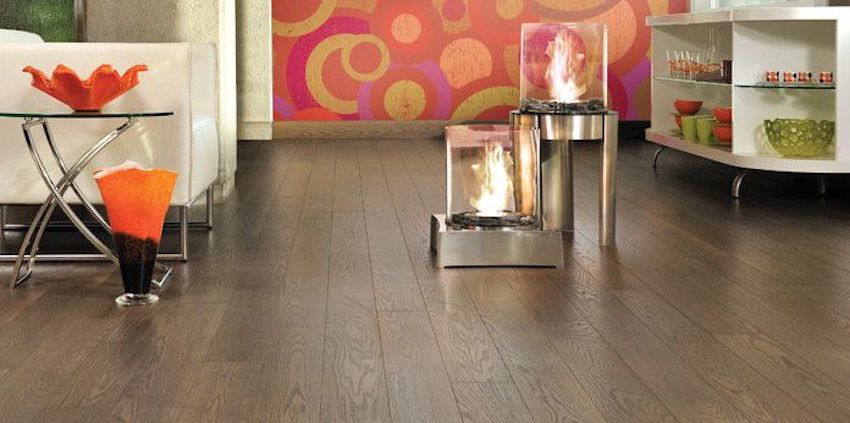
Cost Considerations in the Vancouver Market
The cost of flooring is a crucial factor for homeowners in Vancouver, where property prices are among the highest in North America. When evaluating solid vs engineered hardwood, it’s essential to consider both the initial expenditure and the long-term value each option provides.
Solid hardwood flooring typically commands a higher upfront cost due to its premium material and labour-intensive installation process. However, this initial cost can be balanced by its durability and the option to refinish the surface multiple times. This makes solid hardwood a wise choice for those planning to remain in their homes for many years or looking to maximize property value.
Engineered hardwood, while often less expensive initially, can vary widely in price depending on the quality of the veneer and the core materials used. Its ease of installation can result in lower labour costs, and its resilience to environmental changes can reduce maintenance expenses over time. For budget-conscious homeowners or those looking for a quick, stylish update, engineered hardwood offers an appealing balance of cost and performance.
Comparison Table: Solid vs Engineered Hardwood Costs
| Feature | Solid Hardwood | Engineered Hardwood |
| Initial Cost | High | Moderate to High |
| Installation | Labour Intensive | Easier and Quicker |
| Longevity | Very Long | Long |
| Refinishing Potential | Multiple Times | Limited |
| Environmental Resistance | Low | High |
Professional Installation vs DIY Options
Choosing between professional installation and a DIY approach can greatly affect the cost and outcome of your hardwood flooring project. Each option has pros and cons, and knowing them helps you make a decision that fits your skills and budget.
Professional installation is often recommended for solid hardwood flooring due to the complexity of the installation process. An expert can ensure the flooring is installed correctly, reducing issues like warping or uneven surfaces. Additionally, professionals can offer valuable insights into acclimatizing the wood to Vancouver’s climate, ensuring optimal performance.
For those considering engineered hardwood, a DIY approach can be a viable option, especially with the availability of click-and-lock systems that simplify the installation process. However, it’s important to have a good understanding of the necessary tools and techniques to avoid costly mistakes. If you choose to go the DIY route, thoroughly research and plan your project to ensure a successful outcome.
Whether you opt for professional installation or a DIY approach, it’s essential to weigh the pros and cons carefully. Consider factors such as time, expertise, and budget to determine the best path forward for your hardwood flooring project.
Maintenance Practices for Longevity
Proper maintenance is key to extending the life of your hardwood flooring, whether you choose solid or engineered options. By implementing effective maintenance practices, you can preserve the beauty and functionality of your floors for years to come.
For solid hardwood, regular cleaning and preventative measures are essential. Use a soft broom or vacuum with a hardwood attachment to remove dirt and debris, and promptly clean up any spills to prevent moisture damage. Periodically, you may need to refinish the surface to address scratches and wear, restoring its original luster.
Engineered hardwood requires similar care but with additional considerations for its layered construction. Avoid using excessive water when cleaning, as moisture can penetrate the layers and cause damage. Instead, opt for a damp mop and cleaning products specifically designed for engineered wood. Regularly check for signs of wear or damage, particularly in high-traffic areas, and address any issues promptly to maintain its appearance and structural integrity.
Summary
Choosing between solid and engineered hardwood flooring involves careful consideration of various factors, including environmental conditions, budget, and personal preferences. Both options offer distinct advantages, and the right choice ultimately depends on your specific needs and circumstances. To make an informed decision, consider the climate and moisture challenges specific to Vancouver, as well as the longevity, warranty, and cost implications of each type of hardwood. Evaluate the benefits of professional installation versus a DIY approach, and implement effective maintenance practices to preserve the beauty and functionality of your floors.
